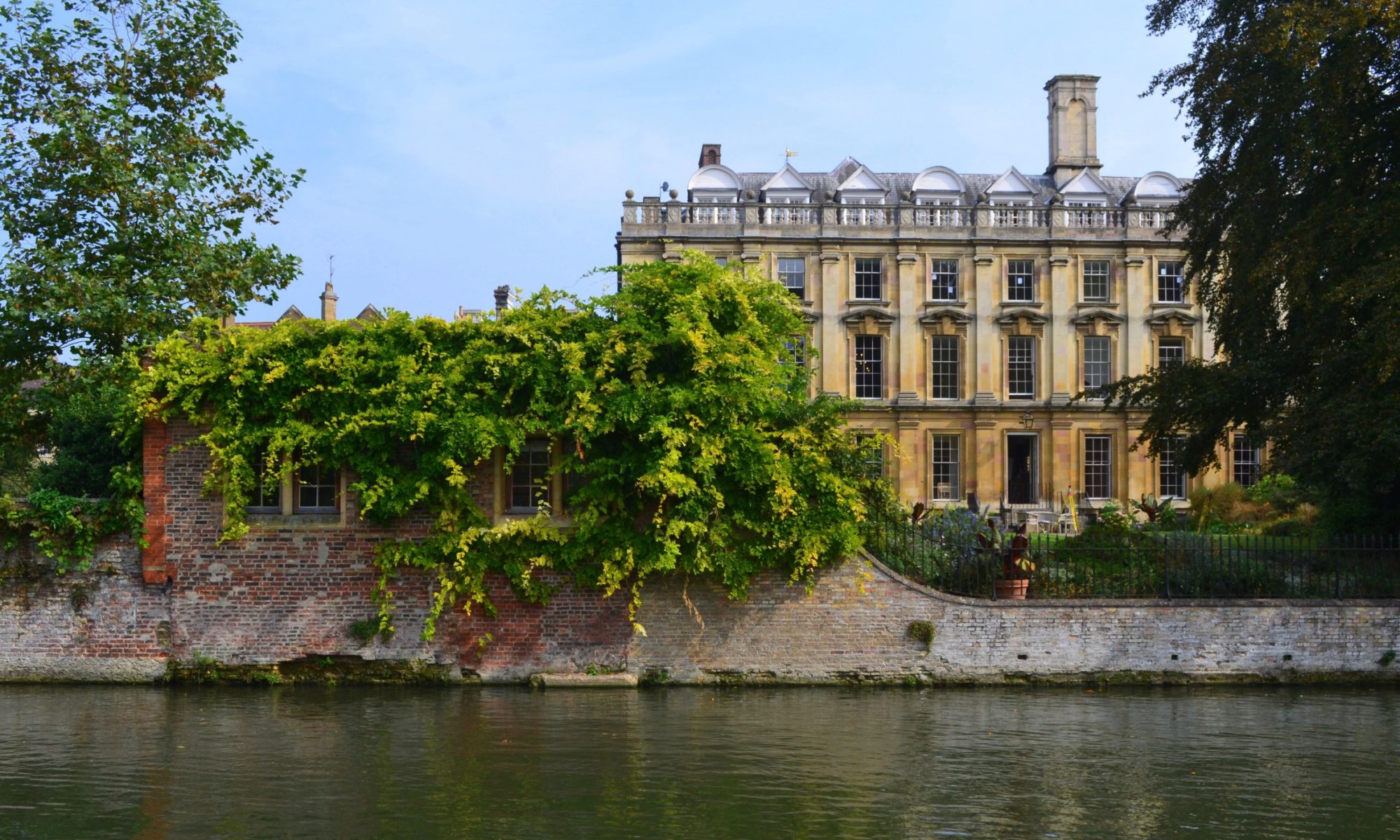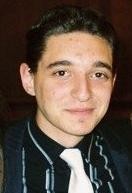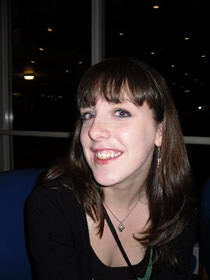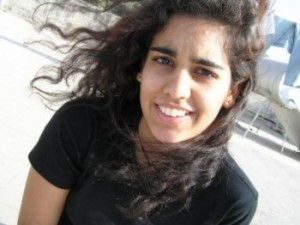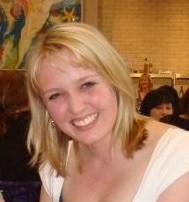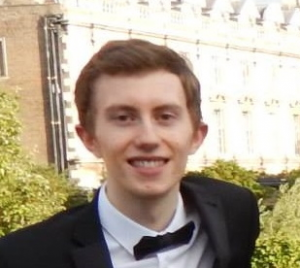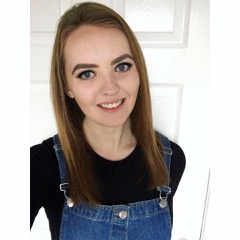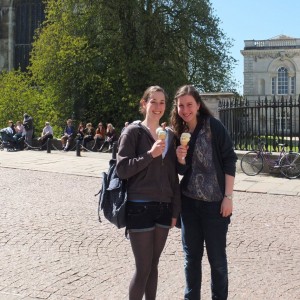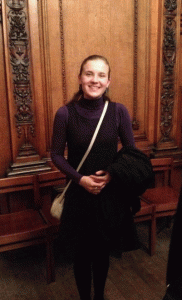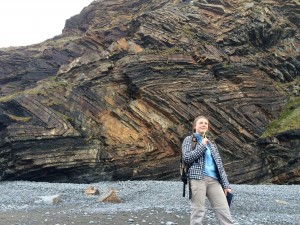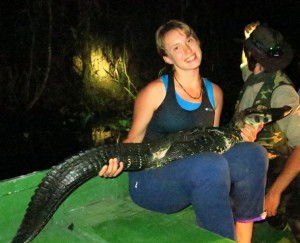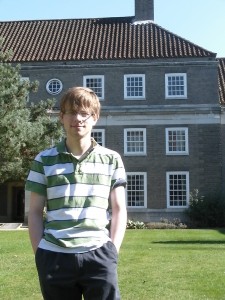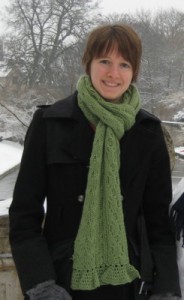The university prospectus may be able to tell you the theory of what the course you’re looking at will be like, but how true is what they say in the prospectus? Here you can find testimonies from students who are actually studying the courses. Students who can tell you exactly what life at Cambridge studying your chosen course will be like. On top of this you can find interview accounts for each of the subjects. These interview accounts will tell you roughly what to expect when you sit down in the room for your interview at Clare. We’ve all been through these interviews and all know how scary it is before you get there, but equally we all know that the interviews were no where near as bad as we expected. So, why not become more knowledgeable before you apply? Find out exactly what your course will be like. Find out roughly what to expect from your interview. Most of all, find out all of this from students who were in your very position just a couple of years ago.
Asian and Middle Eastern Studies (AMES)
Caroline Meinhardt
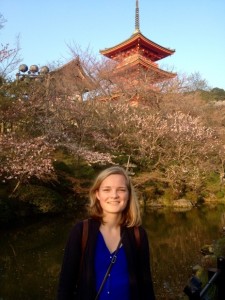
“Why did you decide to study Chinese?”: I must have been asked this question a thousand times already, but I still don’t have the perfect answer. Usually I mention my enthusiasm and curiosity for the language and the fascinating history and culture that comes with it, the challenge of studying something completely new and the prospect of spending a year in China, deepening my understanding of the country. Whatever your reasons, I’m sure you will have an exciting and rewarding experience studying Chinese at Clare.
Clare was an obvious college choice for me as it ticked all the boxes. It’s one of only a handful of colleges that has a fellow in Chinese Studies and a small but lovely community of AMES professors and students. I am the only Chinese student in my year at Clare, but we tend to have 1-3 Chinese students per year and anything between 6-10 students across the years making up our AMES “family”. I was also drawn to Clare for its reputation of being a very musical college with a renowned choir, college music society and jazz bands. But I soon discovered that Clare has so much more on offer with its numerous sport teams, drama groups and other societies ranging from life drawing to knitting. Clare is big enough to cater to all kinds of common and niche interests whilst still being small enough to be a friendly community where everyone knows each other. Add to that its beautifully preserved 17th century buildings and stunning gardens right next to the river and I was sold.
I had as good as no prior knowledge of Chinese when I applied and so my application process included submitting coursework essays I had written for my Spanish and German classes at school. Finally, I had two interviews: one at the faculty and one at Clare. In my subject interview, I was able to talk about some of the books that had first sparked my interest in China before being asked some more specifically language-related questions and discussing a Chinese propaganda poster. My general interview with an AMES professor at Clare was much less about China than it was a conversation about languages and cultures more generally, which evolved into new topics of discussion as we talked. This was unexpected, but it shows that you can’t prepare for all eventualities. The most important thing is to make sure you know why it is you really want to study Chinese here, stay calm and enjoy the conversation; after all, your interviewers aren’t wanting to catch you out but are genuinely interested in your thoughts and ideas.
Four years later I’m still happy I chose Chinese and Clare. I count myself lucky to be studying in a small and intimate faculty in classes that don’t exceed 14 students as it means that I’ve formed close relationships with my teachers and especially with my fellow Chinese students from other colleges. Chinese classes in first and second year move at a fast pace as you quickly build up a vocabulary and a sense of the language alongside the country’s history, but this is hugely rewarding as you can clearly see how much progress you have made at the end of each term. The year with the steepest learning curve (and arguably the best part of the course) is the year abroad. I absolutely loved my time in Beijing; not only did I get the chance to study at China’s top university, but everyday life in this exciting city really boosted my enjoyment of and confidence in the language while the holidays allowed me to travel and explore different parts of the country. That being said, it’s also nice to come back for a final year and be able to really appreciate life in Cambridge. At Clare, this could mean taking one of the college’s punts out on the river with your friends, enjoying a three course meal in our formal hall, sunbathing in the beautiful Fellows Garden or grabbing a pint in Clare Cellars – unofficially the best college bar in town. I like living and studying at Clare because it’s a down-to-earth and supportive community both in terms of the student body and its academic professors and supervisors. The college really does live up to its reputation as the “friendly” college. Besides, what better way to start your day than walking past Clare’s very own statue of Confucius on your way to a lecture on Chinese philosophy.
Computer Science
Elliot Katz
When I decided to apply to study at Cambridge, I didn’t have many criteria for choosing a college; I knew that I didn’t want to apply to one of the very large colleges, but equally I didn’t want to be at a tiny one. I had a look through the prospectus to make a shortlist of colleges and asked a few relatives and family friends for recommendations, and then decided to visit Cambridge to have a look around and get a feel for the colleges that I was considering. I can’t really think of one specific thing which made me decide to choose Clare; the brilliant gardens and the location near the centre of town certainly contributed, but overall it was the feeling that this was a place where I could be happy living and learning.
After applying to Clare, I was offered an opportunity to come and have two interviews, as well as to sit a Thinking Skills Assessment paper. The interview experience was a little daunting but I tried to take the advice that I had been given: to be myself, and not to worry about asking for help working through any questions they might ask. I think the most useful advice I was given about Cambridge interviews is that they’re not trying to find out what you know, they want to see how you learn, so don’t expect to be able to do everything they ask you to! One of my interviews was essentially composed of working through a maths problem, and for the other I was given an article to read before the interview and then asked some questions about it, as well as some questions about me, and why I chose computer science.
Clare has a reputation for being a college with lots of friendly people, and from my experiences I have to agree. I have met loads of lovely people and made plenty of great friends. On the academic side of things, I found that the demands on my time were quite hefty; with 12 lectures a week as well as practicals and supervisions it can get pretty busy, but there’s still time to maintain a healthy social life. In addition to computer science in the first year, we also take a maths paper and a paper from the Natural Sciences Tripos (I chose physics). This gave me a chance to broaden my studies, as well as providing a great opportunity to meet and socialise with the people studying natural sciences.
English
I was originally drawn to apply to Clare for three reasons – its beautiful stone bridge, its reputation as the ‘friendly college’ (which it most definitely is!), and the incredible underground bar which is widely renowned as the best in the university. However, what finally decided it for me was Clare’s emphasis on reading the literature rather than the academic criticism, and their enthusiasm for letting students pursue their own interests rather than prescribed interests made it sound like a place where I could enjoy studying. Also, having suffered the tedious A-level approach of drawing out the study of one Shakespeare play for an entire year, I was attracted to the idea of studying the plays at the more interesting pace of one a week.
After receiving an offer, I heard that Clare has a reputation for being ‘the’ college at which to study English, a fact which might have intimidated me had I heard it before applying. However, I would urge no-one to be intimidated by this – having spent a year here, Clare has more than lived up to its first-class reputation, and it offers a learning environment which anyone with a love for literature should want to be a part of. If you want to be part of it, don’t let any admissions statistics put you off.
On the subject of feeling intimidated: try not to panic about the interviews! I had never experienced any kind of interview before applying to Cambridge, and to suddenly be in a room with two academics asking me questions about my opinions on literature was something completely alien to me. However, just because it was something that I was not used to doesn’t mean it was something I couldn’t enjoy. You will probably have two interviews, in which you will be asked questions about your personal statement and about the reading list which the college will ask you to send in prior to interviews (you will also be asked to send in two marked school essays). Before each interview you will be given a piece of unseen literature, probably a poem for one and a piece of prose for the other, which you will be asked to comment on in the interview (don’t worry, you’re given time to prepare beforehand!). Though this does sound daunting, try not to let it phase you. You should think of the interviews as a good opportunity: you’re getting the chance to discuss the subject you love with two experts in the field, and you should enjoy the experience!
What I have enjoyed most about studying English at Cambridge is the amazing flexibility of the course. Teaching is focussed around weekly supervisions, usually one or two students discussing the work from that week with their supervisor. Being taught in such small groups means that you can really tailor your work around what you want to do – after the limitations which you may have felt at A-level, it is wonderful to have the freedom to choose for yourself which writers you want to write about, and what you want to write about them. This freedom even extends as far as lectures, which aren’t compulsory for English students, meaning you can pick and choose which lectures you want to go to based on whether or not it’s relevant to that week’s work, whether you like the lecturer, or just because you think it looks interesting! But it also means that, on that Monday morning when you really don’t want to get up, you can stay in bed, happy in the knowledge that all your unfortunate scientist friends are miserably shuffling off to their 9am lectures.
Of course, Cambridge isn’t just about the work and lectures – there are so many other activities to get involved in. This year I have played in the Clare orchestra and the University Ceilidh Band, played netball for the college, worked the Clare Ents nights in the cellars, and helped out on the college Access Tour. Whether at prestigious university level, or just for fun at college level, whether you are sporty or musical or outdoorsy or political, there will be societies to suit you. There is a chance for everyone to create a life that they love at Cambridge, and so I wish you the best of luck in applying!
Economics
Ravi Tanna
Comprehensive School, Hertfordshire
I found it really difficult deciding which Cambridge College to apply to, and in the end, choosing Clare was more a matter of luck than judgement. However, looking back over the time I have spent here, I can certainly say that it was the right decision. Clare is an excellent place to both live and study; the accommodation, particularly for first years, is fantastic. And, being situated next to the College and university library means that you always have access to the resources you need. College life is extremely sociable, and there’s always lots going on besides work. We have one of the best bars in Cambridge, which serves as a venue for entertainment events that attract people from across the university. College societies also provide the opportunity to pursue literally any interest you may have, with a group of like-minded people. During my time here, I’ve been part of the student union, helped to run a College charity and captained the Clare basketball team, to name just a few of the activities on offer.
Interview procedures vary by subject, but prospective Economists can expect to face two interviews, each around half an hour in length. Most of the questions I was asked during the interviews were on topics that I was familiar with such as globalisation and public goods, but the style of questions posed was very different from the type I was used to from my A-Level studies. My advice for prospective students is to relax and allow your interest in the subject to show. The interviewers aren’t trying to catch you out and they don’t expect you to be able to regurgitate a textbook. They are simply looking for someone with enthusiasm and interest, who attempts to construct an argument and is willing to learn.
When considering which degree I wanted to study, it was important to me that I would be studying a varied discipline that would keep me engaged. The Economics degree at Cambridge certainly meets this requirement and in the first year alone, you will study five different modules (Microeconomics, Macroeconomics, Quantitative Methods, Politics and Economic History), giving you a broad foundation in economic analysis. The degree is relatively technical and you will find yourself using maths in most of your papers. In particular, statistics becomes an extremely important component of the course in the second year, when you are introduced to the world of Econometrics. We were also granted the right to study one optional paper in second year, and I chose Development Economics. In your final year there is even greater flexibility as you can choose two options in addition to writing a dissertation.
In the first year, there are five supervisions every fortnight and lectures can number 21 a week, though the amount of contact time reduces in the second and third years. In addition, you will find that a substantial amount of independent work is required outside of lectures in order to prepare for each supervision. Yes, this does mean plenty of work, but as a consequence, an Economics degree from Cambridge is one of the most respected degrees in the country and is held in high esteem by employers.
The college you choose will determine the environment in which you live and study. Clare, with its stunning gardens, grade 1* listed building, supportive staff, central location, great bar and varied people has a great deal to offer. Go for it; you have nothing to lose and everything to gain.
Engineering
I didn’t know much about Cambridge when I applied as I did not have any close friends or family who had studied here before. I chose Clare as it ticked all the right boxes for me: it was close to the town centre, medium-sized, offered some of the best accommodation in the university; but the point that caught my eye was that it was described as ‘the friendly college’. This has definitely held true throughout my time here, and I even remember feeling slightly less nervous than I could have been before my interviews and assessments due to this welcoming atmosphere. The students and staff all greeted me with a smile and were happy to help when I couldn’t navigate my way around the beautiful buildings and gardens.
I had applied for the direct Engineering course and was given the opportunity to attend an interview and assessment day where I had two interviews and also took the Thinking Skills Assessment (TSA). Both interviews were quite daunting as I wanted to do my best, but at the same time I felt reassured that the interviewers were not there to point out my faults, rather encourage me to ‘think outside the box’. After my first year here I realised that this was a concept that was embedded into the objectives of the engineering department to develop our knowledge and skills, and to nurture innovative thinking.
The engineering course is a challenge as you study all its branches e.g. electrical or structural, in the first two years until the third and fourth years when you can begin to choose the modules that you are most interested in and want to specialise in. Engineering is a demanding course, but very rewarding to be able to have a grasp of the various engineering fields as most real-life problems that engineers will be solving will span more than one specialisation. There is also a lot of work involved, but there are also (almost) equal amounts of fun to balance it out: The University offers a huge number of societies and clubs to get involved with, and Clare College is known for its musical background, but other college activities such as sports are also popular to get a healthy break away from work. With all this to choose from, I have tried a number of different activities during my time here such as badminton and netball at college, kickboxing with the university club, and playing in a band for a college production. I am also in the University India, Hindu, and Engineering societies which provide even more opportunities than college already offers to socialise with people from outside of college!
I have had such an incredible time at Clare, and hope that you would consider applying here because it is one great experience. Wishing you the best of luck!
History
I chose to apply to Clare because I loved the college from when I first visited it. It manages to be old and beautiful, whilst also having fantastic accommodation, a great bar and an incredibly relaxed atmosphere that is perfect for unwinding in. However, the real appeal of Clare is its character- it honestly is one of the friendliest colleges, with a fantastic musical heritage, a society for everything you could ever think of, one of the best May Balls in the university and a perfect location. Tell people you go to Clare and they are guaranteed to “ooh” and say that it is “so nice”, which is the college’s greatest strength and honestly a true reflection of what it is like.
History at Clare is brilliant, the history fellows are really welcoming. You will have a few meetings a term with the other historians in your year (Clare normally takes between 7 and 10), as well as individual meetings with your Director of Studies, and larger informal gatherings with all the Clare historians. Clare is truly lucky with its fellows and connections, and you will be supervised by some truly remarkable people- but don’t be daunted! History is a really friendly department in general and especially at Clare, where the small department are all very close. Clare is also perfect for history as the college has a brilliant library (the FML) and is also very close to the faculty library (the Sidgwick) and the University Library, which is brilliant for those late deadlines!
Interviews are incredibly daunting. I know it is clichéd, but honestly remember to keep perspective, and if possible, enjoy your interview! It isn’t the inquisition some of the rumours make it out to be: when applying for history at Clare you will have two interviews, each with two fellows. You will be asked to send in two essays (from your school work, not specially written) which will be the focus of your first interview, as well as some more general questions on which periods you are interested in (if there is a period you’d really like to talk about, send in an essay on it and/or mention it in your personal statement- play to your strengths!) The second interview includes a small test, where you will be given a short source before your interview, with some time beforehand to study it. During this interview you will discuss the source and history in general. DO NOT BE AFRAID OF THE TEST. Your interviewers will not expect you to know everything about an unseen source! What they are looking to find out is how you think, not what you know, and how you use facts and ideas. They are also simply looking to you as a person, to see whether you would be happy at Clare! The best advice to interviews therefore is honestly just to be relaxed, yourself, and confident when you go in. Read your essays and feel assured discussing them; actually read any books you have name-dropped in your personal statement (!) and show as much genuine and sincere enthusiasm for the subject as is appropriate to you!
It is SO important to stress that not all your time at Clare and Cambridge is academically based. My experience at Clare so far has been wonderful, and it’s the ‘extra-curriculars’ than really make your experience at Cambridge great. Since I’ve been here, I’ve played netball and hockey for the college (which offers teams for all stages and commitment levels), tried rowing, worked at the ents, done tours for the Access scheme, been a member of the design team for Clare May Ball 2009 and had an absolute blast. There honestly is an activity for you whatever your preference- whether you are a sporting god (try out for the uni teams or have a fantastic time playing for the college), a fantastic musician (Clare has a fantastically talented and well-renowned choir and orchestra, as well as open mic nights), a talented actor or dramatist (Clare Actors do an event every term and the annual panto is a complete scream), an organising whiz with creative flair (get involved with the May Ball or Clare’s ‘ents’, our fantastic club nights in the atmospheric cellars).
HSPS
George Pinder
State School, Huddersfield, West Yorkshire
Applying to Cambridge sounds like a big decision but in actual fact the nature of the application process means that it is more like making lots of smaller decisions and negotiating a number of smaller tasks that follow on from each other. Don’t be put off applying by thinking that it is one big daunting task that you can’t possibly be successful in; instead, approach it with the mind-set that you have nothing to lose and everything to gain.
On my first visit to the University of Cambridge as part of a trip organised by my sixth-form college, we were shown around two colleges: Selwyn and Clare. Almost immediately, Clare College impressed me and I found myself imagining studying and living in such an amazing environment. It was on this instinctual basis that I applied for Clare as opposed to other colleges and I don’t think you should choose a college based on calculations such as which one will most likely accept you or anything like that. In reality, it doesn’t really matter which college you apply for or end up at – you will come to love your college whichever one it may be. When choosing a college, therefore, just go for one which you have a ‘good feeling’ about; I know that sounds woolly and superstitious but just plump for whichever one feels right to you for whatever reason!
This is not to downplay the virtues of Clare College, however; Clare is a college with a welcoming, friendly, and relaxed atmosphere that places a strong focus on the well-being of its students. The staff who work for the college, whether it be the porters, the College nurse, or the bursars, are incredibly supportive and cannot do enough to help you and ensure that you are content and comfortable. Clare is also a great environment aesthetically-speaking; in particular, Old Court, Clare Bridge, and the gardens mean that Clare is a great place to live and study.
Having decided to apply to the University of Cambridge and specifically Clare College, I then turned my attention to deciding which course I wanted to study and decided upon HSPS. I primarily chose HSPS because it included reading politics and international relations which were the subjects I wanted to pursue at university; however, more abstractly, the appeal of HSPS was in its broad and varied nature. The course covers a wide range of subjects and provides an unparalleled opportunity to study many different stimulating and rewarding topics. For me, the beauty of HSPS lies in the fact that it is not geared towards any specific job or profession and it goes against the preaching of high school and sixth-form teachers to pick a course for pragmatic career reasons; instead, HSPS encapsulates everything that university should be about: namely, enjoying learning for learning sake. No other reason for learning and studying is necessary other than its intrinsic value and this is what HSPS is all about.
With regard to the application process, think about it as a test for your benefit as much as anything else; how much you enjoy the process and how well you do will tell you a lot about whether Cambridge is the right place for you. For example, the interviews are reminiscent of supervisions therefore if you enjoy the intimate and intense style of the interviews, you can be confident that you will enjoy the supervisions even more.
Once you have been accepted, it is easy to feel like the journey has ended rather than just begun but when you embark on your first term after a long summer break it is easy to re-focus your mind to the work. In the first year, the going rate is 12 essays per term (each term is 8 weeks) which is certainly demanding but not completely overwhelming by any means. My best piece of advice would be to focus initially on simply meeting the deadlines without being preoccupied with composing a ‘perfect’ essay. The essays come so thick and fast that a below-par essay is forgotten as quickly as a masterpiece – just hit the deadlines and very soon you will find that essay quality and punctuality will begin to dovetail naturally.
Overall, HSPS is a brilliant course to study; the fact that the material covered is novel to pretty much all students and is so varied means that it is a relatively pressure-free course in terms of needing to know specific details. Instead, it is a challenging and eye-opening course that centres on you producing nuanced, subtle, and persuasive arguments on exciting and rewarding subjects.
Law
The question of why I chose to study law is one with endless answers! To me, law is one of the most dynamic and diverse subjects one can study. The intellectual challenge of this subject appealed to me greatly – law isn’t merely studied in a bubble concerned with its current state and application. Instead, theoretical, contextual and ethical issues are consistently taken into consideration and are subject to much academic debate. Questions of why the law is the way it is, and perhaps what it should be, are deliberated against the broader social, historical, economic and political context, rendering the subject extremely stimulating. Work experience involving time spent in solicitors’ offices and shadowing barristers in court really opened my eyes to the many areas of law that actually exist, and none of them sounded dull! When studying law, there is an extensive range of papers available, which encourages you to take the opportunity to pursue your own interests. In addition to the two second year ‘Foundation’ papers of Contract Law and Land Law, I opted for International Law, which is one of the areas of law that I first found most intriguing and sparked my initial interest in studying law. In addition, having thoroughly enjoyed learning Constitutional law in my first year, I chose Administrative law as I find the theoretical concepts thought-provoking and its application in the public law realm fascinating. My final option this year is Criminology, Sentencing and the Penal System, which I find exciting as it engages questions of a more sociological and policy-based nature.
In my opinion, Clare is the ideal college to choose. It has the advantage of a perfect location, being close to the centre of town, and when you are living in Memorial Court’s great accommodation as a fresher, you are a mere five minutes away from the Faculty of Law. Old Court is really quite beautiful, and the stunning gardens are the perfect place to relax during the summer, which is the perfect time of year to take advantage of the college-owned punts. Clare is situated right on the river, which is incredibly scenic, and you’ll never tire of the picturesque views when walking across Clare Bridge. The variety of societies offered here is exceptional – there really is something for everyone, whether you’re interested in politics, music, drama, sport or something totally different, and you are always more than welcome, regardless of your ability. Clare is renowned for having the best student-run college bar in the whole university, and it hosts Clare Ents every Friday night, as well as termly bops. Before coming to Cambridge, I didn’t expect that I would attend so many formal dinners. Clare has formal hall every weekday and you can attend as often or as infrequently as you choose. There is something so novel and so ‘Cambridge’ about wearing a gown to dinner! Another Cambridge tradition is May Week after the end of exams. Clare’s spectacular May Ball is one of the most popular of the week’s festivities, and for me it was one of the highlights of my first year.
Never having thought that receiving an offer from Cambridge was even remotely possible, the application process felt rather daunting, especially given that I had no substantial legal knowledge whatsoever, and I was going to be interviewed by no less than a Cambridge academic, an expert in their field. However, I discovered that there was really no need to have such a worry. My interview lasted approximately twenty minutes, and during this time I was presented with a hypothetical scenario involving legal problems. It was not expected that I knew the relevant law. What was more crucial was that I could think carefully on my feet about what I was going to say in response to the questions I was asked. Interviews will be looking for demonstration of a logical, step-by-step thought process, guided by the employment of well-supported reasoning. Upon reflection, I found my interview to be more enjoyable than nerve-wracking! In addition to the interview, there is the Clare Law Test, which is a comprehension-based, 90-minute exam. Once again, the basis of the extracts lay in legal concepts, however, as opposed to an assessment of your legal knowledge, it is your ability to read carefully the extract and analyse it closely, before evaluating and applying the relevant information in a logical way to answer the questions posed.
Studying law is certainly challenging in such a fast-paced learning environment with such a steep learning curve. However, it is simultaneously rewarding and enjoyable, and you will end up finding the demanding nature of the course advantageous. There are two Law Reading Rooms available 24 hours a day, exclusively for Clare lawyers and land economists. This facility provides almost all of the resources you will need, as well as securing a relaxed study atmosphere, where you can work closely with your peers and discuss the work as a group. There are ten lawyers in my year, and its very helpful to hear each other’s thoughts and opinions on a particular point at issue. I have found that I got to know the other lawyers in all year groups at Clare very well as you spend so much time working together, as well as attending lectures and supervisions together on a daily basis. The Clare College Law Society has termly ‘Small Hall’ dinners, which provide important networking opportunities, as well as the chance to find out about various law firms. The supervisors and your Director of Studies at Clare are dedicated academics who are helpful and approachable and happy to answer your questions. They provide invaluable advice and guidance, and constantly push you to fulfil your potential. This greatly supplements the supportive community advocated by Clare, in terms of academic and tutorial staff, as well as the students. In my opinion, the best thing about Clare is that it really lives up to its reputation as the ‘friendly college’ with its community atmosphere giving it great character. I didn’t imagine that I would ever feel so at home at Clare, and I would whole-heartedly encourage you to apply here!
Medicine
State Comprehensive School
There’s no particular script for choosing a college. I liked the idea of a college with a river bank, which narrowed the choices a little. I visited Clare (among many other colleges!) at one of the Summer open days. Everyone I met was lovely and it seemed to keep up its reputation for being one of the friendliest colleges. It also has some of the best 1st year accommodation, is a nice size – not too tiny or too large and overwhelming – and has its own punts!
A year in, I think the very best thing about Clare is its openness and friendliness. The college feels like a proper community made up of a whole range of people and characters. One of my biggest concerns before starting at Cambridge was whether I would fit in. At Clare I really think that you’d have to work pretty hard not to! Right from day 1 I felt comfortable and looked after, never feeling judged or pressured to conform in any particular way – in fact there’s no stereotype to conform to! There’s also a real sense of integration – I have friends across all courses and years, undergraduate and graduate.
Studying at Clare is fantastic. Medics lectures are only a 10 minute walk away with a fudge kitchen and its free samples en-route. The FML (college library) is on the doorstep and has brilliant facilities, plenty of copies of the core text books, enough for each medic, and provides a half skeleton on a year loan to each 1st year. College teaching happens via supervisions. The number and format of supervisions varies between colleges. At Clare we typically have 3 – 4 supervisions a week each with 2 or 3 other medics. We discuss the week’s essays, lectures, practicals and get the opportunity to question experts! Supervisions are great, even if a little daunting at first!
Our college Buttery provides good meals, including the eagerly anticipated Saturday Brunch. There is also formal hall, open 4 nights a week, if you’re in the mood for something a bit fancier! Cellars, the Clare bar, is a great place to relax with a drink and a game of pool as well as hosting Ents every Friday, live music acts, comedy nights, quizzes and all sorts of other events.
One of the best things about Cambridge societies is that it’s largely up to you how seriously you want to take whatever hobbies you do. College societies tend to be more relaxed whilst if you’re looking for more serious commitment there’s always the uni societies. Clare certainly has societies for everyone and if not just set up your own!
Life as a Cambridge medic is busy, but there is plenty of time to get involved in things outside of medicine (in fact its probably a necessity!). I took up rowing (having never been anywhere near a boat before) in first term, am part of the university trampolining club, enjoy watching the debates at the union, go to Friday’s ents and generally find time to get involved in Cambridge life, so don’t worry about that!
I absolutely LOVE being a Clare medic and could not have chosen a better college (although I am a little biased!).
Interview account
The main thing I found with Cambridge interviews is that they were quite science centered, more so than most of the other interviews I had. But, I think the main thing to remember is that they want to see how you think, not regurgitate so don’t worry about memorising everything and don’t panic when you don’t know stuff!
I had 2 separate interviews for Clare (with a couple of hours in-between). The first one asked fairly open questions but with a scientific basis. The second was largely data interpretation and picked up on a couple of points from my personal statement and the additional SAQ statement. The questions certainly couldn’t be crammed for! They involved coping with open questions and applying basic knowledge to come to a logical and reasonable conclusion.
The second interview was more about me. The questions were based on work experience but investigated whether I was actually interested in the work and asked me to show that I had probed deeper. Basically I think they want to see that you do work experience because you enjoy it and to learn from it, not just to tick boxes!
People often ask about what medical news they need to know, but I don’t think I got asked anything about medical news in either interview. Some of the questions might have involved some basic knowledge of the bigger stories and it might be useful to have an interest in something you’ve read so you can integrate it into an answer.
Although interviews will always be scary they were really not as bad as I was expecting. The interviewers tried to relax me and were encouraging rather than terrifying! I came out of the interview thinking it had gone fairly badly (which seems to be the case for everyone) but found that I had actually almost enjoyed the experience!
I think the main thing is not to panic. They will want to see how you think and work through a problem – not that you know everything about everything (exam results indicate that you know facts). They will ask you questions you don’t know the answer to so I suppose the best thing is to practice being yourself in interview type situations. I also did lots of just talking about objects before mine, which sounds insane, but I needed to practice open questions!
Try not to cram before the interview. Practice being yourself and talk enthusiastically about experiences. Try and enjoy the interview (or at least pretend you are)!
Veterinary Medicine
Carys Redman-White
Student profile
State comprehensive in Hampshire
I chose Cambridge because I like to know exactly what’s going on and understand fully the science underpinning the clinical work of a vet – and Cambridge is fantastic for that. I’m really excited to be starting the intercalated year (third year), which gives the opportunity to focus on an area of interest and choose either a dissertation or a research project, from which we earn a Bachelor’s degree at the end of the year. This helps develop a deep understanding of the scientific process behind medical advances that will come into play throughout our veterinary careers, and gives us a chance to try out research, working with some of the most influential scientists in their fields.
I’ve loved the course so far, and contrary to the rumours, you do get to work with live animals right from the start! One of the best things about the course is that it gives you a very broad understanding, encompassing everything from the evolution of the domestic animals to the application of biological concepts to humans – but it still enables you to gain a deep insight and focus on areas of interest, through intercalation and fantastic events organised by societies such as the university’s Veterinary Zoological Society.
Coming from a state comprehensive, I was initially nervous, but actually the whole university – and Clare in particular – is really friendly and I’ve never felt out of place. The people here are from all sorts of backgrounds, with an incredible range of interests and hobbies, but what we all have in common is that we love our subject. The traditions of the university really add to the experience, there are a plethora of societies to get involved in and the collegiate system ensures that you get to know people from lots of different subjects. I’m really glad to be studying here!
Interview account
When I applied to Cambridge in 2009, I wasn’t really sure what to expect at interview – I’d heard that there might be one subject-related and one general interview, but actually the first interview was pure science, with the second being more clinical, each about 20 minutes long.
In the first, I was given graphs and data on unfamiliar topics, and asked to explain what was going on based on the science I’d learned so far at A-level and from background reading. I was also asked about the biology behind aspects of work experience I’d mentioned in my personal statement, and questioned on the extended project I’d done. My interviewers were really friendly and encouraging, and I really enjoyed it, which made it much less scary to go into the second interview!
For the second, I was asked more about the biology of domestic animals, working things out from first principles, and was helpfully nudged in the right direction when I got stuck (which was a lot!). I also had to think about clinical situations, and was given some really interesting scenarios, drawing on experience I’d gained while seeing practice. I really wasn’t sure how well or badly they’d gone, but had enjoyed the day and given my all, which was what counted – my main advice to applicants is to pay lots of attention in your work experience, revise plenty of science in preparation for the interview, and then when you get there just do your best, explain your thought processes and let your passion for the subject shine through!
Mathematics
Richard Lewis
Student Profile
The Maths course at Cambridge is designed to be challenging but rewarding and that’s certainly what I’ve experience so far in studying it at Clare. Each year the college accepts roughly 10 new undergraduates for maths, a number which I’ve found is small enough so that you can really get to know the other mathematicians at Clare but big enough so that you’ll always be able to find someone having a similar experience with the course.
Interview Account
I had two interviews which involved attempting two or three problems in turn with the interviewer giving hints or suggestions as I progressed. Also, in the first interview I was asked a couple of more general questions about my educational background and what I had enjoyed in Maths up to then.
Educational Background
Comprehensive
Biochemistry
Lorna Wills
Throughout my A level studies I realised that my interest lay across both Chemistry and Biology and with a wide range of biological topics. I would be fascinated by microbiology but love reading about evolutionary history. Many of the university courses, especially within the biological sciences, required you to specialise even before you had begun your degree and the Cambridge Natural Sciences course offered so much more breadth and flexibility. The first year gives you a fantastic grounding in the biological or physical sciences so that whatever you eventually decide to pursue you are coming at it from a background of wide scientific knowledge. In your first year there is also a compulsory Maths component. These cater to a wide range of abilities and there are Biological Mathematics options for the biologists which are more applied and focussed on how Maths could be used to understand biological systems which I found very interesting and useful. The second year allows you the chance to begin to specialise slightly but you can still keep your options open. I studied Chemistry, Biochemistry and Cell and Developmental Biology so could end up doing Chemistry or Biological options in my third year. I decide to take Biochemistry for 3rd year and am really enjoying the opportunity to further my understanding and combine the Biology and Chemistry I have previously studied. During the coming Lent term the Biochemists undertake a term long independent research project within one of the labs in the department. I am really looking forward to being able to apply all the techniques I have learnt throughout the course and it will be fantastic preparation for my intended career in research. The Biochemistry course is also one of a limited number of Biology options which offers a 4th year and I am intending to stay on for this. During 4th year you do a research project over two terms which I hope will further develop my research skills and allow a more in depth investigation into the research problem.
When it came to choosing a college to apply to, I had felt for a long time that I would like to go to Clare. It has a well deserved reputation as a friendly college and a strong musical tradition. The chapel choir are highly acclaimed and the opportunity to hear them at evensong is something which definitely should not be missed! Clare Ents and Clare Jazz cater for more contemporary tastes but there is such a wide range of societies and events that you are sure to find something you love. Clare also has some of the most beautiful buildings and grounds of any college. Walking through Old Court at night is always a special experience and the gardens are a lovely place to relax in summer. Old Court and the gardens provide a spectacular location for Clare’s annual May Ball which is an incredible experience – it just about makes exams worth it!
Clare is also a very strong college for Natural Sciences. Both the first year accommodation in Memorial Court and second year accommodation in The Colony are well situated for science lectures, which are less than fifteen minutes away by bike. The directors of studies and fellows for Natural Sciences are all friendly and helpful and there is the additional excitement of having David Attenborough as an alumnus – Clare’s science society has an annual formal and many years he is the speaker!
The Natural Sciences course is very rigorous and will challenge you but the support from directors of studies and friends means it is manageable and intellectually stimulating rather than overwhelming! I have had a fantastic time in my first two years and look forward to what is to come.
Earth Sciences
Catherine Clark
Independent School, Hertfordshire
A levels: Maths, Further Maths, Physics, Chemistry
1st year: Maths, Chemistry, Earth Sciences, Computer Science
2nd year: Chemistry A, Chemistry B, Earth Sciences A
3rd year: Earth Sciences
My problem is that I’ve always liked too many things. Having struggled to pick GCSEs and A-levels at school, Natural Sciences seemed like the perfect way to delay specialisation and allow myself the time to explore new and unfamiliar subjects to a higher level. Although I didn’t do physics in my first year here, I am technically a physical natural scientist, or “phys natsci” for short. Instead of physics, I decided to pick up two new subjects: Computer Science and Earth Sciences. Now in my third year, I have chosen to specialise in Earth Sciences, and spent four weeks of my summer doing fieldwork in Newfoundland, Canada for my geological mapping project this year.
Often people hear the word ‘geology’ and immediately think ‘dull’, but rocks are a lot more interesting than you might think! Earth Sciences covers a wide range of topics including plate tectonics, the Earth’s climate system, sedimentology, geochemistry, palaeobiology, mineralogy, petrology, geophysics and more! You even get to attend lectures on dinosaurs… The department is one of the most friendly in Cambridge, having frequent coffee mornings and a ‘Happy Hour’ every Friday evening in the common room. In the first year, there is a field-trip to the Isle of Arran which is incredibly good fun, and allows you to get to know the other students in your year, as well as some of the PhD students and even the lecturers!
Unlike most people, my choice of college was based on the college chapel choirs. I knew before coming to Cambridge that if I were to do one extra-curricular activity, then it would be to sing in a choir. I’d done a lot of research into the choirs at each college, including their time commitments, choir directors and chapels. Clare Choir seemed like the right level of commitment for me, and I knew that it had a very good international reputation. I have sung in Clare Choir for the last two years and really loved the experience. I have been tremendously lucky to tour with the choir to the Netherlands, the USA and South-East Asia as well as record three CDs, leaving me with memories that I will treasure for life. Other extra-curricular activities I have got involved with include Clare mixed lacrosse, Clare College Music Society, Clare May Ball design team and volunteering at the Sedgwick Museum.
Now in my third year, I am still as indecisive as I ever have been. I hope to carry on Earth Sciences for a fourth year to gain a M.Sci. After that, I haven’t got a definite plan. As I said at the beginning, I like too many things, so I feel confident that whatever I end up doing, I know that I will enjoy it.
Zoology
Anna Peel
District High School, Texas, USA
The biggest question I faced when applying to university was what subject I should focus on. This was a problem; I love literature and science equally, so many weeks were spent agonizing over the issue. Eventually I found a better question to ask: in which subject can I really work on the edge of the unknown? The answer to that was, of course, science. Only Cambridge offered the sort of whole-scale course I was looking for – Natural Sciences, a vibrant environment in which interdisciplinary exchange is not only possible but sought after.
As I was in America at the time, visiting individual colleges in person was impossible; I chose Clare because of the musicality and friendliness for which it was renowned, and because the gardens looked beautiful. All three things were more true than I could have realized. Nearly everyone you talk to here plays an instrument or sings, and although some are intimidatingly skilled, the majority are happy to sing or play with you at the drop of a hat; the atmosphere in supervisions is always one of friendly cooperation, and there’s always someone willing to help you through a tricky topic or week; and the gardens are open in revision term to anyone who can’t stand the sight of the library any more and simply must finish their reading upon a bench near a pool filled with lilies. I’ve heard people from other colleges say similar things about Clareite friendliness, so it’s not just bias!
Clare is also the perfect environment for extracurricular activities. Sure, the work at Cambridge is time-consuming, but the Directors of Studies and supervisors here never insist that work become your whole life. The boat club is predictably one of the friendliest on the river, we have an unauditioned choir that sings music from a wide range of genres (world folk music, musicals, popular songs)… there is even a knitting club that meets in one of the most comfortable rooms in college to drink tea and make woollen goods, and a gardening club with its own allotment in Colony. I honestly couldn’t have chosen a better college (and this may be bias, but it is wholehearted bias.)
My first year courses were Earth Sciences, Evolution and Behaviour, and Biology of Cells. The three are surprisingly complementary, especially for those interested in gaining a wider understanding of the interdependency of Earth systems. I would recommend that any curious first-year look into Earth Sciences, especially if they haven’t considered it before; the course is taught by lecturers unafraid to admit that the material is evolving as they speak, and has a variety of field trips to get you out of the Cambridge “bubble”. I continued in second year with this broad approach to subject choice, with Earth Sciences A, Plant Sciences, and Animal Biology. As a third year Zoologist, I can say that keeping a wide range of subjects into the second year was a perfect choice, despite doubts and doubters at the time! I want to become a field biologist, and the postgrad courses I’m applying for all value the wide perspective these courses allowed me to develop.
MML
I first heard about Cambridge when I was in Year 10 at school. We were all in a computer room, having been told to look at the UCAS website, when I found the prospectus for Modern and Medieval Languages (MML) at Cambridge. It immediately intrigued me, but I didn’t really do much about this new-found interest for a few years.
When the time came to start thinking seriously about university, it took me a while just to decide what I wanted to study: it was a toss-up between languages and history. In the end, I just thought about which piece of homework I would rather do first – French or History – and that was that. Languages it was.
When applying, the first thing I had to do was to submit a UCAS application, followed by the SAQ (Supplementary Application Questionnaire). I was a little nervous about this, but there was really no need to be as everything was explained extremely clearly. It’s done online, just like UCAS, and so there’s no need to panic about sending it off in time!
The interview procedure for MML at Clare may seem daunting, but it’s really not as scary as it may seem. You have one interview for each language that you’re applying to study. This meant one French interview and one Spanish interview. For French, I was given a poem 15 minutes beforehand and was asked to study it ahead of discussion in the interview (which was conducted in a mixture of French and English). Despite having done Spanish to GCSE, I was applying to study it ab initio, or ‘from scratch’: I was still given a text, but was asked whether I was able to figure anything out about it from my knowledge of other languages. The interviewers were also very keen to find out my reasons for wanting to study Spanish on such an intensive course.
MML applicants also have to sit a written test, which is specifically designed to be equally approachable for students of all languages. In my year, I was given a text on a pretty obscure topic (the history of reading glasses, I think …) and asked to write a summary of it in one of the languages that I was applying to study (I chose French). There were also a couple of analysis questions on the text, which were to be answered in English. To cut a long story short, I was very lucky and got an offer to study French and Spanish (A*AA, with the A* in French).
I arrived in Cambridge last October. Since then, I’ve discovered that the MML course is completely different to learning languages at school, since it sees language very much as a way to accessing culture, as well as being an end in itself. This means that, in my first year, I’ve had to study literature – but it’s honestly nothing to worry about. The literature element, while it may seem terrifying, is designed so that you can succeed regardless of whether or not you have studied literature before.
In my first year, I’m taking six papers: three in French (post-A-Level) and three in Spanish (ab initio). Both languages have a ‘Use Of’ component, which tests your knowledge of the language, as well as translation (from the language studied into English) and orals. The other two papers are both ‘scheduled papers’, which are basically cultural or specialist papers. My combination is unusual in that I have no choice in my first year: all French first-years do a general literature, film and linguistics introductory paper, whilst all Spanish ab initio first-years study an introductory literature module (which, owing to the vagaries of Faculty administration, is technically a language paper …). As you can see from the MML website, though, the choice of papers explodes from the second year onwards. At the moment I’m weighing up whether to study medieval literature, including some poems that push the boundaries of taste somewhat; whether to continue looking at the nineteenth-century period, which I’ve enjoyed so much this year; or whether to borrow a paper in sociolinguistics from the Linguistics Tripos.
The ab initio Spanish course is designed to take you up to A-Level standard in about a year. Like the Cambridge workload in general, it’s no picnic, but is still perfectly manageable if you keep on top of things. The main difference from the post-A-Level courses is that there’s a lot more language work involved, so our grammar workbook, Uso de la gramática española, has become my new best friend!
Across French and Spanish, I’m taught in three main ways. As I write this, lectures are just drawing to an end as exams approach, but I’d normally have around two French lectures and one Spanish lecture a week, each around 50 minutes long. The second method is language classes, of which there are two per week for both Spanish and French (both an hour long, with one of the French classes being in translation). For each of these classes, we have to complete around two hours of homework beforehand and hand it in; this may be a writing task, grammar exercises, or a practice test. The third method is supervisions, which are a big part of what makes Cambridge unique. Supervisions are small-group sessions between a teacher and up to four students, and I have them in French and Spanish oral, Spanish language, French literature and linguistics, and Spanish literature and translation. Many people find supervisions to be one of the most intellectually challenging elements of the MML course, since they offer a fantastic opportunity to learn at an extremely fast pace and to ask any questions. For the literature, linguistics and translation supervisions, there is always an essay or translation piece to complete and to hand in before the supervision, which you then discuss during the session. This is a really fantastic way to get feedback on how you’re progressing. Between all of these ways of being taught, I have around nine hours of contact time per week, which is more than most Arts students but less than Science students.
Outside of studying, I tend to relax through my involvement in clubs and societies. I’m a trumpeter in Colonel Spanky’s Love Ensemble, the Clare College jazz band; I handle some of the design work for Polyglossia, the University’s Modern Languages Journal; and I’m heavily involved in Access work, doing school tours and taking part in the annual Shadowing Scheme. I’m also a coxswain at Clare Boat Club, which is great fun and completely different from anything else that I do anywhere else!
Music
Joy Lisney
Independent School, London
My decision to apply to Clare College was made on the spur of the moment – I had heard that it was known as the ‘musical’ college and had the most beautiful bridge over the River Cam. I was sold! When I arrived on 1st October it soon became clear that I was going to be very happy here. Clare is not known as the ‘friendly’ college for nothing and I was immediately introduced to my second year ‘parents’ and inducted into the camaraderie of the staircase where I would live for the year. It also seems that Clare College, nestled alongside King’s Chapel and sprawling across the river to the beautiful Fellows’ Garden, occupies the ideal location in Cambridge. The unbelievable proximity to the music faculty building on West Road makes it possible to roll out of bed at 8:55 and still make it to a 9 o’clock lecture. It is also the perfect distance from Sainsbury’s – a pleasant walk even when you are weighed down with shopping bags. An added bonus is the five-minute walk to the athletics track and other sports fields where I spend most of my time!
Returning to music, Clare attracts many high-level musicians both to its illustrious choir and the music society which holds termly concerts in West Road Concert Hall. Of course the best players from the rest of the university are always clamouring to join our orchestra and Clare players are often called upon to boost the orchestras of other colleges. As for the degree, I have thoroughly enjoyed my first year. The course is refreshingly diverse, developing a variety of core skills to support the choices we make for second and third year. I have learnt such a lot about types of music I would not have thought to investigate before and this knowledge is feeding into the most important part of my musical life, which is performing. In fact, that is one of the best things about reading music at Clare. It is a real education and thus an ideal preparation for careers in academia, performance and everything in between.
